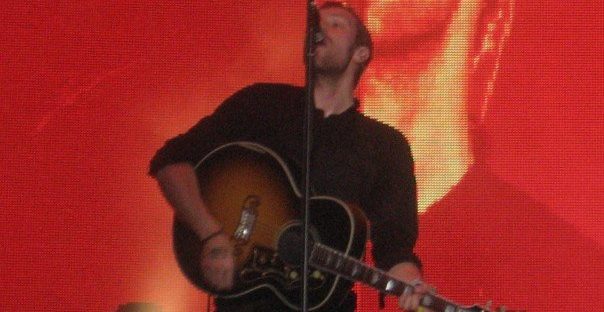
There are two passions in my life. Gardening and Coldplay. Anyone who knows me knows that I am a MASSIVE Coldplay fan. I’ve been to many of their gigs in various countries around the world. I have all their albums and many of their singles in various different formats, including some bootleg demo stuff. Their music has been there in trying periods of my life when I’ve felt down or alone. I learned to play guitar simply to be able to play their songs. My son was born to their album Mylo Xyloto. I have a friend who knows Chris Martin’s parents who, with perfectly good reason because I get embarrassingly starstruck, would not dare to engineer a meeting. When playing Singstar (a computer console karaoke game) with my friends, I would put in extra effort when singing a Coldplay song and god help them if I were to lose! Its pretty safe to say I am obsessed, although not in a Mark Chapman sort of way.
So what does all this have to do with gardening? Let me explain…
You see Coldplay have just released their 8th studio album, Everyday Life, which as you might imagine I am rather enthusiastic about. Their single release ‘Orphans’ taken from the album contains the following second verse:
‘Baba would go where the flowers grow
almond and peach trees in bloom
and he would know just when and what to sow
so golden and opportune
he went woo woo woo woo oo oo oo
tulips the colour of honey today
its true, true. Woo woo woo woo
with bombs going boom baboom boom’
You see, the song itself is in part about life continuing against the backdrop of war, displacement by it and a yearning for a return to normal. Now I can’t imagine for a second that Baba was going ‘woo’ whilst bombs were raining around him. Even not knowing him I would have thought that rather unlikely.
However, this character of the song, Baba, is inspired by a real person, albeit known by a different name. Chris Martin himself has stated that a BBC article about an Afghan gardener is one of the inspirations for the song. In October 2017 the BBC reported about an 18-year old Afghan called Hamidullah who gardened as a means of coping with ongoing violence in his war torn country. They have also reported on an elderly couple living in Kabul who have continued to garden through decades of war. The New York Times wrote in May 2019 a touching story of their Kabul bureau gardener who sadly died and of his son who asked for his father’s job because his family had no other means of support. It is impossible to not read or watch these articles without a tear in the eye.
You see us gardeners are an optimistic bunch and gardening itself inherently an optimistic subject. We sow seeds, we nuture, we wait and watch them grow. We inevitably make mistakes and hopefully learn from them. We plan for succession and the future, we share and pass on knowledge and on it continues. When complimented on my gardens, I am always saying how next year will be better than this year.
But gardening is not just about aesthetics. It is often overlooked as such, and horticulture budgets are usually the first to be slashed or eliminated altogether by under funded Councils who presumably consider the activity nothing more than a frivolity, but gardening goes much deeper than that.
Gardens and gardening heal. Green spaces improve our physical and mental health. There is anecdotal evidence aplenty and the scientific evidence for that is building too. They are a place of refuge. They are a place of tranquility and meditation. There is something fundamental in ourselves and our connection to the land, something some of us have lost and I am lucky to have found.
These are troubled times and in an increasingly troubled world we need gardens more than ever and gardeners always looking with hope to a better future. As Chris Martin would say, don’t ever give up.

No responses yet